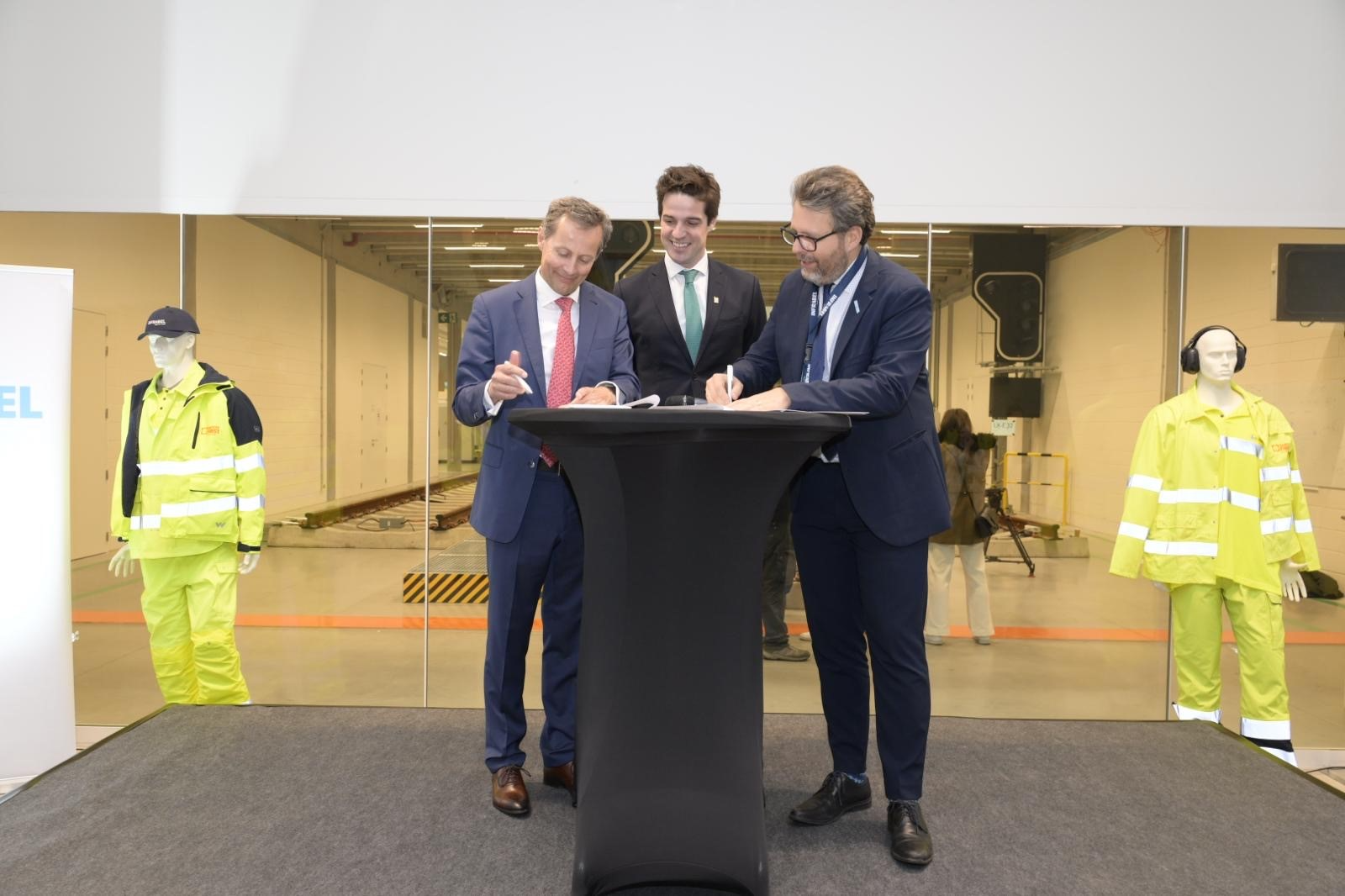
Infrabel invests €80 million in new sensors for safer, more punctual trains

Bernard Belvaux, the managing director of Alstom Benelux, State Secretary for Relance and Strategic Investments Thomas Dermine (PS) and Infrabel chief Benoît Gilson at the signing of the contract/Infrabel
Belgian rail network operator Infrabel and the French multinational rolling stock manufacturer Alstom will install up to 10,000 new sensors


Comments
Ready to join the conversation?
You must be an active subscriber to leave a comment.
Subscribe Today